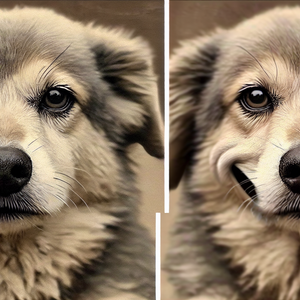The Future of Advertising with AI: Transforming Campaigns for Maximum ROI

At the heart of AI-driven advertising lies the capability to process and analyze enormous datasets with remarkable speed and accuracy. Machine learning algorithms are utilized to discern patterns within historical campaign data, enabling AI agents to identify strategies that produce the best outcomes. For instance, AI can segment audiences more precisely by analyzing demographic information, browsing habits, and past purchase behavior. This segmentation allows for personalized ad content that speaks directly to individual preferences. Moreover, AI agents can make real-time adjustments to campaign parameters, such as budget allocation and target demographics, based on performance metrics. Imagine a scenario where an AI agent detects that a specific demographic segment is responding positively to a particular advertisement. The agent can automatically reallocate budget and resources to amplify this engagement, ensuring that the campaign yields maximum ROI. This automation not only enhances efficiency but also allows marketers to focus on strategic planning rather than routine adjustments.
Successful Case Studies
Several companies have successfully integrated AI into their advertising strategies, yielding impressive results. One of the most prominent examples is Amazon. By employing AI algorithms, Amazon has optimized its ad placements and product recommendations, which has led to a substantial increase in conversion rates. In 2020, Amazon reported advertising revenue exceeding $21 billion, largely attributed to its advanced AI-driven marketing strategies. Another compelling case study is Coca-Cola, which utilized AI to analyze social media sentiment and consumer behavior. By leveraging AI analytics, Coca-Cola tailored its advertising campaigns to resonate more closely with target audiences, resulting in a 4% increase in sales in the first quarter of 2021 alone. These examples illustrate the tangible benefits that AI optimization can deliver, reinforcing its potential to drive ROI across various sectors.
Implications for Various Industries
The potential for AI-driven advertising extends far beyond e-commerce and consumer goods, impacting a multitude of industries. In the travel industry, businesses can harness AI to create personalized marketing messages based on user preferences, past travel history, and even real-time factors such as weather conditions. Airlines, for example, can dynamically adjust pricing strategies based on demand fluctuations, ensuring they capture maximum revenue during peak travel seasons. In the realm of entertainment, streaming services like Netflix employ AI algorithms to analyze viewer preferences and behavior. By recommending content that aligns with user interests, these services enhance user experience, driving subscription renewals and increasing viewer retention rates. This personalized approach ensures that content remains relevant and engaging, leading to higher customer satisfaction. The financial sector is also exploring AI-driven advertising strategies. Banks and financial institutions can utilize AI to analyze consumer behavior and tailor promotional offers based on individual financial histories, credit scores, and spending patterns. This targeted approach not only enhances customer engagement but also boosts conversion rates for financial products.
The future of advertising is undeniably intertwined with the advancements in Artificial Intelligence. As AI technology continues to evolve, its ability to dynamically optimize ad campaigns based on data-driven insights presents a unique opportunity for businesses to maximize their ROI. Companies that embrace AI-driven solutions will not only remain competitive but will also unlock the full potential of their advertising efforts. With successful case studies from various industries paving the way, the transformation of advertising through AI is no longer a distant possibility; it is rapidly becoming a reality. The pressing question for businesses is not whether they will adopt AI in their advertising strategies, but rather how quickly they can implement these technologies to reap the rewards of this revolutionary shift. As organizations look to the future, investing in AI agents that optimize ad campaigns could be the key to unlocking unprecedented marketing success.
AI Marketing Specialist
Large tech companies, advertising agencies (e.g., WPP, Omnicom), and e-commerce platforms
Core Responsibilities
Develop and implement AI-driven marketing strategies to enhance campaign performance and ROI.
Analyze marketing data to identify trends, audience segments, and optimization opportunities.
Collaborate with cross-functional teams to integrate AI tools into existing workflows.
Required Skills
Proficiency in machine learning principles and data analytics tools (e.g., Python, R, SQL).
Experience with marketing automation platforms (e.g., HubSpot, Marketo).
Strong understanding of consumer behavior and digital marketing strategies.
Data Scientist in Advertising
Digital marketing firms, major brands (e.g., Procter & Gamble, Unilever), and tech startups
Core Responsibilities
Utilize statistical analysis and machine learning to derive insights from large datasets for advertising campaigns.
Develop predictive models to forecast campaign performance and customer behavior.
Present findings to stakeholders and recommend actionable strategies for optimization.
Required Skills
Expertise in data visualization tools (e.g., Tableau, Power BI) and programming languages (e.g., Python, R).
Experience in A/B testing and experimental design specific to advertising.
Strong analytical skills with attention to detail in data interpretation.
Marketing Automation Specialist
SaaS companies, digital marketing agencies, and e-commerce leaders
Core Responsibilities
Implement and manage marketing automation systems to optimize campaign execution and customer engagement.
Create workflows and triggers based on customer behavior and segmentation data.
Monitor and analyze campaign performance, making adjustments to improve results.
Required Skills
Familiarity with CRM and marketing automation tools (e.g., Salesforce, Pardot).
Understanding of customer journey mapping and lifecycle marketing.
Strong project management skills and ability to work in a fast-paced environment.
AI Solutions Architect for Marketing
Technology consultancies, AI startups, and large corporations focusing on digital transformation
Core Responsibilities
Design and implement AI solutions for marketing processes, including audience targeting and content personalization.
Collaborate with IT and marketing teams to ensure seamless integration of AI tools.
Conduct feasibility studies and assessments to identify suitable AI technologies for marketing use.
Required Skills
Strong technical background in AI technologies and cloud platforms (e.g., AWS, Google Cloud).
Experience with API integration and data architecture.
Excellent communication skills to articulate technical concepts to non-technical stakeholders.
Digital Marketing Analyst
Advertising agencies, retail companies (e.g., Target, Walmart), and tech firms
Core Responsibilities
Analyze digital marketing campaigns and provide insights to optimize performance and ROI using AI analytics.
Track and report on key performance metrics, offering strategic recommendations based on data analysis.
Conduct market research to identify trends and competitive insights that inform advertising strategies.
Required Skills
Proficiency in web analytics tools (e.g., Google Analytics, Adobe Analytics) and data interpretation.
Understanding of SEO, PPC, and social media marketing strategies.
Strong critical thinking and problem-solving abilities.


